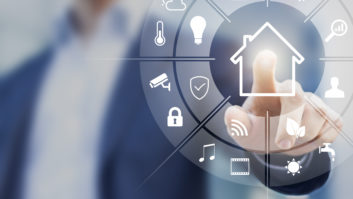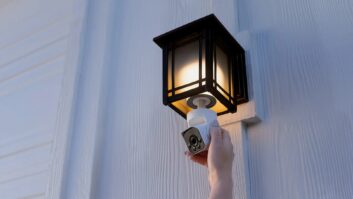
One of the biggest challenges for seniors and consumers with a disability is remaining independent. According to a study originally published in the International Journal of Older People Nursing, smart home tech “may support older people’s quality of life, particularly in the domains of achieving in life and future security.” The study even notes that the results are similar even when a person doesn’t live alone. This opens the door for collaboration with caregivers and institutions to adopt more smart home tech.
While lighting, personal safety, and security are foundational aspects of using smart home tech for greater independence, niche devices present a unique opportunity. Niche smart devices might be less useful for the average consumer, but the entire equation changes with an accessibility-first approach. Here are a few notable examples. For the sake of this article, smart home devices may or may not work with an automation system, but include an electronic component to enhance the user experience.
Smart kitchen appliances

It’s easy to dismiss electronic kitchen gadgets as unnecessary when manually-operated versions are cheaper and just as effective. However, motorization in particular is an incredible resource for people with limited use of their hands and fingers. The clearest example is the humble electric can opener, which operates with the touch of a button rather than the turn of a knob.
A more modern example is the smart toaster, like the Whall Touch Screen Toaster. Its main benefit is a bright screen that shows visual examples of what the user can expect from a given setting. Not only is this helpful for achieving a desired level of doneness, but it can also help individuals who don’t remember what a button does. The removal of dials and buttons even helps reduce the need for fine motor control—the user needs only to press down the lever after making a selection.
Smart bathroom tech
 The bathroom is another area that can pose accessibility challenges, but there is a wealth of simple and complex solutions alike. Smart toilets, smart faucets and smart showers have clear benefits for simplifying the user experience. However, the water-centric nature of these devices often results in expensive products as well as the need for professional installers.
The bathroom is another area that can pose accessibility challenges, but there is a wealth of simple and complex solutions alike. Smart toilets, smart faucets and smart showers have clear benefits for simplifying the user experience. However, the water-centric nature of these devices often results in expensive products as well as the need for professional installers.
Although those products have great potential for marketing your installation services, even basic bathroom smart home gear can be an easy win. Consider offering devices for those with mobility challenges, such as an electric toilet brush or an automatic soap dispenser. Likewise, you can recommend a smart speaker for the bathroom to help with controlling the lights, getting appointment and medication reminders, and as a way to call emergency contacts for assistance. (While staying mindful of their privacy.)
Smart devices around the house

Daily life can be easier with strategic smart home automation tech where customers need it most. Perhaps you could suggest a smart coffee mug or even a simple mug warmer to people who frequently forget to drink their coffee before it gets cold. This understated convenience is a useful addition in a home office or even by a favorite reading chair.
Smart home devices can be valuable resources for keeping a house clean, which can improve the quality of life for people with conditions that are sensitive to pollutants. The obvious example is a robot vacuum, which can assist with keeping the house clean when an individual is less able to handle traditional vacuuming. Self-emptying vacuums can play a part.
Even a smart air purifier or smart humidifier can make it easier to control contaminants. contaminants. However, be mindful that these devices often require maintenance tasks—e.g., cleaning, filters, refills—that add complexity for individuals and caregivers. Consider offering supplemental services, like regular filter deliveries, to help with these tasks.
Smart lighting, safety, and security
Depending on your definition of niche, using a smart device for daily tasks outside its main function more than qualifies. For example, entry sensors in a home security system are versatile tools for pursuing independent living. When paired with automations, these sensors can turn on lights in closets where drawstring switches are out of reach, track when someone opens a medicine cabinet, or send a reminder if they haven’t let the dog out yet.
In that vein, a flood sensor can send a notification when someone gets in the shower—provided it’s not a tripping hazard. Multicolor RGB smart lights are an ideal choice for reminders and notifications for people with hearing difficulties, while smart speakers can serve a similar purpose for those with vision impairments.
By stepping back to see how niche smart home devices for independent living can serve your customers, you can open up the possibilities to expand or refocus your business with a larger pool of consumers.
See also: Josh.ai Partners With Level













